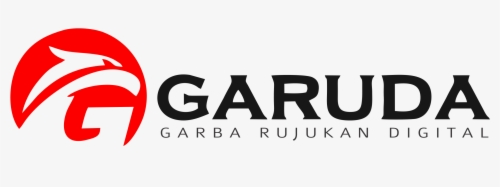Exploring factors influencing SMEs’ success: The perspective of entrepreneurial and learning orientations
DOI:
https://doi.org/10.22219/jibe.v8i01.30206Keywords:
Innovativeness, proactiveness, learning orientation, business strategyAbstract
The primary objective of this study is to explore the intricate relationship between learning orientation, business strategy, and firm performance among small and medium-sized enterprises (SMEs) in Indonesia. By examining the impacts of innovation, proactiveness, and risk-taking on both business strategy and learning orientation, this research aims to shed light on the factors influencing SME success. Surveys were administered to a purposive sample of 300 SMEs in Jakarta and West Java, and data were analyzed using structural equation modeling. The findings indicate that innovation positively influences both business strategy and learning orientation, whereas proactiveness has a minimal impact on business strategy but significantly affects learning orientation. Furthermore, risk-taking emerges as a crucial driver of both business strategy and learning orientation. This study contributes by providing empirical evidence on the significance of entrepreneurial traits in shaping SME performance and offers practical insights for enhancing organizational sustainability and growth in the Indonesian business context.
Downloads
References
Alerasoul, S. A., Afeltra, G., Hakala, H., Minelli, E., & Strozzi, F. (2022). Organisational learning, learning organisation, and learning orientation: An integrative review and framework. Human Resource Management Review, 32(3), 100854. https://doi.org/10.1016/j.hrmr.2021.100854
AlOmari, F. (2022). The mediating role of hospital image: The impact of care cost and service quality on patient satisfaction. Journal of Innovation in Business and Economics, 6(1). https://doi.org/10.22219/jibe.v6i01.18475
Asfiah, N. (2021). Do Islamic social entrepreneurship moderate Islamic leadership and emotional intelligence? Evidence from micro and small enterprises fostered by ‘Aisyiyah. Journal of Innovation in Business and Economics, 5(01), 23–34. https://doi.org/10.22219/jibe.v5i01.16221
Bae, B., & Choi, S. (2021). The effect of learning orientation and business model innovation on entrepreneurial performance: focused on South Korean start-up companies. Journal of Open Innovation: Technology, Market, and Complexity, 7(4), 245. https://doi.org/10.3390/joitmc7040245
Basyirah, L., Kina, A., & Hidayati, A. (2022). Open innovation for sustainable development goals: Learning from GoTo Group. Journal of Innovation in Business and Economics, 6(1). https://doi.org/10.22219/jibe.v6i01.21745
Boso, N., Oghazi, P., & Hultman, M. (2017). International entrepreneurial orientation and regional expansion. Entrepreneurship and Regional Development, 29(1–2), 4–26. https://doi.org/10.1080/08985626.2016.1255430
Chen, H., Amoako, T., Quansah, C. E., Danso, S. A., & Jidda, D. J. (2023). AssesSMEsnt of the impact of management commitment and supply chain integration on SMEs’ innovation performance: Moderation role of government support. Heliyon, 9(5). https://doi.org/10.1016/j.heliyon.2023.e15914
Chen, J., Yin, X., & Mei, L. (2018). Holistic Innovation: An Emerging Innovation Paradigm. International Journal of Innovation Studies, 2(1), 1–13. https://doi.org/10.1016/j.ijis.2018.02.001
Corvello, V., Cimino, A., & Felicetti, A. M. (2023). Building start-up acceleration capability: A dynamic capability framework for collaboration with start-ups. Journal of Open Innovation: Technology, Market, and Complexity, 9(3), 100104. https://doi.org/10.1016/j.joitmc.2023.100104
Cuevas Vargas, H., Parga Montoya, N., & Fernández Escobedo, R. (2019). Effects of Entrepreneurial Orientation on Business Performance: The Mediating Role of Customer Satisfaction—A Formative–Reflective Model Analysis. SAGE Open, 9(2). https://doi.org/10.1177/2158244019859088
Dankiewicz, R., Ostrowska-Dankiewicz, A., & Bulut, C. (2020). The attitudes of entrepreneurs of the small and medium-sized enterprises sector in Poland to key business risks. Equilibrium. Quarterly Journal of Economics and Economic Policy, 15(3), 511–536. https://doi.org/10.24136/eq.2020.023
Danso, A., Adomako, S., Damoah, J. O., & Uddin, M. (2016). Risk-taking Propensity, Managerial Network Ties and Firm Performance in an Emerging Economy. Journal of Entrepreneurship, 25(2), 155–183. https://doi.org/10.1177/0971355716650367
Falatoonitoosi, E., Schaffer, V., & Kerr, D. (2022). Does Sustainable Tourism Development Enhance Destination Prosperity? Journal of Hospitality and Tourism Research, 46(5), 1056–1082. https://doi.org/10.1177/1096348020988328
Ferraris, A., Mazzoleni, A., Devalle, A., & Couturier, J. (2019). Big data analytics capabilities and knowledge management: impact on firm performance. Management Decision, 57(8), 1923–1936. https://doi.org/10.1108/MD-07-2018-0825
Ferreras Méndez, J. L., Olmos Peñuela, J., Salas Vallina, A., & Alegre, J. (2021). Entrepreneurial orientation and new product development performance in SMEs: The mediating role of business model innovation. Technovation, 108(July). https://doi.org/10.1016/j.technovation.2021.102325
García Cabrera, A. M., Martín Santana, J. D., Déniz Déniz, M. de la C., Suárez Ortega, S. M., García Soto, M. G., & Melián Alzola, L. (2023). The relevance of entrepreneurial competences from a faculty and students’ perspective: The role of consensus for the achievement of competences. International Journal of Management Education, 21(2). https://doi.org/10.1016/j.ijme.2023.100774
Głodowska, A., Maciejewski, M., & Wach, K. (2019). How entrepreneurial orientation stimulates different types of knowledge in the internationalisation process of firms from Poland? Entrepreneurial Business and Economics Review, 7(1), 61–73. https://doi.org/10.15678/EBER.2019.070104
Goerzig, C. (2022). Deradicalization through Double-Loop Learning? How the Egyptian Gamaa Islamiya Renounced Violence. Studies in Conflict and Terrorism, 45(8), 704–726. https://doi.org/10.1080/1057610X.2019.1680193
Hair et al. (2017). A primer on partial least squares structural equation modeling (PLS-SEM). In International Journal of Research & Method in Education, 38(2). https://doi.org/10.1080/1743727x.2015.1005806
Hair, J. F., Risher, J. J., Sarstedt, M., & Ringle, C. M. (2019). When to use and how to report the results of PLS-SEM. European Business Review, 31(1), 2–24. https://doi.org/10.1108/EBR-11-2018-0203
Han, J., Jiang, P., Hua, M., & Childs, P. R. N. (2023). an Exploration of the Role of Innovation in Crowdfunding Product Design Projects. Proceedings of the Design Society, 3(1), 535–544. https://doi.org/10.1017/pds.2023.54
Hariyati, H., & Tjahjadi, B. (2018). Contingent Factors Affecting the Financial Performance of Manufacturing Companies: The Case of East Java, Indonesia. Asian Journal of Business and Accounting, 11(1), 121–150. https://doi.org/10.22452/ajba.vol11no1.5
Isichei, E. E., Emmanuel Agbaeze, K., & Odiba, M. O. (2020). Entrepreneurial orientation and performance in SMEs: The mediating role of structural infrastructure capability. International Journal of Emerging Markets, 15(6), 1219–1241. https://doi.org/10.1108/IJOEM-08-2019-0671
Jain, S., Islam, H. A., Goossen, M. C., & Nair, A. (2023). Social movements and institutional entrepreneurship as facilitators of technology transition: The case of free/open-source software. Research Policy, 52(2), 104672. https://doi.org/10.1016/j.respol.2022.104672
Kallmuenzer, A., & Peters, M. (2018). Innovativeness and control mechanisms in tourism and hospitality family firms: A comparative study. International Journal of Hospitality Management, 70(November 2016), 66–74. https://doi.org/10.1016/j.ijhm.2017.10.022
Kiyabo, K., & Isaga, N. (2020). Entrepreneurial orientation, competitive advantage, and SMEs’ performance: application of firm growth and personal wealth measures. Journal of Innovation and Entrepreneurship, 9(1). https://doi.org/10.1186/s13731-020-00123-7
Kwak, D.-W., Seo, Y.-J., & Mason, R. (2018). Investigating the relationship between supply chain innovation, risk management capabilities and competitive advantage in global supply chains. International Journal of Operations & Production Management, 38(1), 2–21. https://doi.org/10.1108/IJOPM-06-2015-0390
Latifah, L., Setiawan, D., Aryani, Y. A., & Rahmawati, R. (2021). Business strategy – MSMEs’ performance relationship: innovation and accounting information system as mediators. Journal of Small Business and Enterprise Development, 28(1), 1–21. https://doi.org/10.1108/JSBED-04-2019-0116
Ling, C. S. Y. (2019). Financial Risk and its Performance: A Study on Apollo Food Holdings Berhad in Malaysia. SSRN Electronic Journal. https://doi.org/10.2139/ssrn.3494639
Lingens, B., Miehé, L., & Gassmann, O. (2021). The ecosystem blueprint: How firms shape the design of an ecosystem according to the surrounding conditions. Long Range Planning, 54(2). https://doi.org/10.1016/j.lrp.2020.102043
Mansour, H., Aminudin, E., Mansour, T., Abidin, N. I. A. B., & Lou, E. (2022). Resource-Based View in Construction Project Management Research: A Meta-Analysis. IOP Conference Series: Earth and Environmental Science, 1067(1). https://doi.org/10.1088/1755-1315/1067/1/012057
Martín Rojas, R., Garrido Moreno, A., & García Morales, V. J. (2023). Social media use, corporate entrepreneurship and organizational resilience: A recipe for SMEs success in a post-Covid scenario. Technological Forecasting and Social Change, 190, 122421. https://doi.org/10.1016/j.techfore.2023.122421
Meekaewkunchorn, N., Szczepańska-Woszczyna, K., Muangmee, C., Kassakorn, N., & Khalid, B. (2021). Entrepreneurial orientation and SMEs performance: The mediating role of learning orientation. Economics and Sociology, 14(2), 294–312. https://doi.org/10.14254/2071-789X.2021/14-2/16
Pratama, F. C., & Herman, R. T. (2023). Creating an environmentally responsible business: Evaluating, designing and prioritizing strategies. Journal of Innovation in Business and Economics, 6(2). https://doi.org/10.22219/jibe.v6i02.24355
Pratono, A. H., Darmasetiawan, N. K., Yudiarso, A., & Jeong, B. G. (2019). Achieving sustainable competitive advantage through green entrepreneurial orientation and market orientation: The role of inter-organizational learning. Bottom Line, 32(1), 2–15. https://doi.org/10.1108/BL-10-2018-0045
Sahasranamam, S., & Raman, G. V. (2018). Individual resources, property rights and entrepreneurship in China. International Journal of Emerging Markets, 13(6), 1502–1521. https://doi.org/10.1108/IJoEM-02-2018-0097
Saskara, I. A. N., & Setyari, N. P. W. (2022). Uncovering the indispensable role of women in nurturing resiliency: Evidence from MSMEs in Denpasar. Journal of Innovation in Business and Economics, 6(2). https://doi.org/10.22219/jibe.v6i02.21938
Souto, V. T., & Fadel, L. M. (2019). Human Factors and Ergonomics Design Principles and Guidelines: Helping Designers to Be More Creative. In Advances in Intelligent Systems and Computing. Springer International Publishing. https://doi.org/10.1007/978-3-319-96071-5_17
Srimulyani, V. A., Hermanto, Y. B., Rustiyaningsih, S., & Setiyo Waloyo, L. A. (2023). Internal factors of entrepreneurial and business performance of small and medium enterprises (SMEs) in East Java, Indonesia. Heliyon, 9(11). https://doi.org/10.1016/j.heliyon.2023.e21637
Sugiyono. (2019). Statistika untuk penelitian (3rd ed.). Alfabeta.
Suswadi, Irawan, N. C., & Aulia, N. N. (2022). The nexus between green strategic consensus, innovation, and performance evidence from eco-friendly food agro-industry companies in Indonesia. IOP Conference Series: Earth and Environmental Science, 1108(1). https://doi.org/10.1088/1755-1315/1108/1/012033
Tallman, S. (2017). Annual EIBA conference in Vienna, 2-4 December 2016 and from Torben Pedersen.
Tarihoran, A. D. B., Hubeis, M., Jahroh, S., & Zulbainarni, N. (2023). Market-based dynamic capabilities for MSMEs: Evidence from Indonesia’s ornamental fish industry. Journal of Open Innovation: Technology, Market, and Complexity, 9(3), 100123. https://doi.org/10.1016/j.joitmc.2023.100123
Trieu, H. D. X., Nguyen, P. Van, Nguyen, T. T. M., Vu, H. T. M., & Tran, K. T. (2023). Information technology capabilities and organizational ambidexterity facilitating organizational resilience and firm performance of SMEs. Asia Pacific Management Review, 28(4), 544–555. https://doi.org/10.1016/j.apmrv.2023.03.004
Twum, K. K., Kwakwa, P. A., Ofori, D., & Nkukpornu, A. (2021). The relationship between individual entrepreneurial orientation, network ties, and entrepreneurial intention of undergraduate students: implications on entrepreneurial education. Entrepreneurship Education, 4(1), 39–66. https://doi.org/10.1007/s41959-021-00044-w
Vaitoonkiat, E., & Charoensukmongkol, P. (2020). Stakeholder orientation’s contribution to firm performance: The moderating effect of perceived market uncertainty. Management Research Review, 43(7), 863–883. https://doi.org/10.1108/MRR-07-2019-0296
Virglerova, Z., Khan, M. A., Martinkute-Kauliene, R., & Kovács, S. (2020). The internationalization of SMEs in Central Europe and its impact on their methods of risk management. Amfiteatru Economic, 22(55), 792–807. https://doi.org/10.24818/EA/2020/55/792
Wahyuni, N. M., & Sara, I. M. (2020). The effect of entrepreneurial orientation variables on business performance in the SMES industry context. Journal of Workplace Learning, 32(1), 35–62. https://doi.org/10.1108/JWL-03-2019-0033
Yu, Y., Huo, B., & Zhang, Z. (2021). Impact of information technology on supply chain integration and company performance: evidence from cross-border e-commerce companies in China. Journal of Enterprise Information Management, 34(1), 460–489. https://doi.org/10.1108/JEIM-03-2020-0101
Zbierowski, P. (2020). The mystery of high performance – mediation by entrepreneurial orientation and organizational citizenship behavior. Journal of Entrepreneurship, Management and Innovation, 16(2), 67–91. https://doi.org/10.7341/20201623
Zhang, J., & Wu, W. Ping. (2017). Leveraging internal resources and external business networks for new product success: A dynamic capabilities perspective. Industrial Marketing Management, 61, 170–181. https://doi.org/10.1016/j.indmarman.2016.06.001
Zhou, Z., Zhang, L., Lin, L., Zeng, H., & Chen, X. (2020). Carbon risk management and corporate competitive advantages: “Differential promotion” or “cost hindrance”? Business Strategy and the Environment, 29(4), 1764–1784. https://doi.org/10.1002/bse.2468
Downloads
Published
Issue
Section
License
Copyright (c) 2024 Andhi Sukma

This work is licensed under a Creative Commons Attribution-ShareAlike 4.0 International License.
















